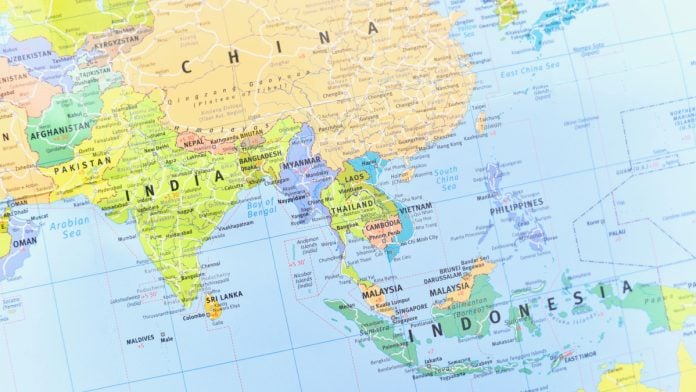The United Nations has taken aim at the cryptocurrency and casino sectors as a ground for money laundering activity by Southeast Asian criminal organisations.
A report published this week has highlighted a lack of regulation of both sectors, including the widespread use of junkets and e-junkets in the case of casino, coupled with the growth in adoption of cryptocurrency.
These networks have been used by criminal groups in Myanmar, Loas, Cambodia, Vietnam and Thailand to launder ‘billions’ in both state-backed fiat and cryptocurrency generated from illicit activity, according to the UN.
Continued growth of the Southeast Asian casino market is apparently ringing alarm bells at the UN due to the sector’s money laundering potential. The UN is concerned that this potential has attracted criminal networks.
Jeremy Douglas, UNODC Regional Representative for Southeast Asia and the Pacific, said: “Casinos and related high-cash-volume businesses have been vehicles for underground banking and money laundering for years, but the explosion of underregulated online gambling platforms and crypto exchanges has changed the game.
“Expansion of the illicit economy has required a technology-driven revolution in underground banking to allow for faster anonymised transactions, commingling of funds, and new business opportunities for organised crime.
“The development of scalable, digitised casino- and crypto-based solutions has supercharged the criminal business environment across Southeast Asia, and particularly in the Mekong.”
The UN report notes that casino and Special Economic Zones (SEZs) have ‘proliferated’ throughout Southeast Asia, but an intended consequence of this has been a ‘proliferation’ of organised crime.
According to the UN, there are over 340 licenced and unlicenced land-based casinos operating throughout the region with many offering live-dealer streaming and operating with ‘various proxy betting licences’.
This market is expected to grow by US $205bn by 2030, with the scene in Asia Pacific projected to grow by 36% between 2026 to 2026. Whilst this will continue to generate tax revenue for the states in question and dividends for the firms involved, the UN remains concerned about criminal activity.
Much attention in the region has been focused on the most visible forms of organised crime, such as drug production and distribution. However, the UN believes that the technological advancement of these groups is just as alarming.
This has seen criminals carry out cyber fraud scams and operate illegal online casinos – particularly in the Mekong region in the years since COVID-19 – with money often laundered via cryptocurrency and through legislative casinos.
The report explained: “Alarmingly, organised crime groups running many of these operations have done so with growing sophistication, through the use of data mining and processing, blockchain technology and, increasingly, generative artificial intelligence.”
“Organised crime groups have converged where they see vulnerabilities, and casinos and crypto have proven the point of least resistance,” Douglas added.
“That said, operations against syndicates in countries including Cambodia and the Philippines have caused a partial displacement, and we have seen criminals moving infrastructure into other places where they see opportunity — basically where they expect they will be able to take advantage and not be held to account, to remote and border areas of the Mekong, and recently elsewhere.”
Changes to the traditional junket sector have also been raised by the report. Junkets are traditionally an operation which connects VIP clients with land-based casinos, assisting with travel, accommodation and the customer experience.
Technological developments have seen the rise of ‘e-junkets’, which have ‘changed the game’ – alongside crypto exchanges and online casinos – as a form of money laundering for criminal groups.
Moving forward, the UN laid out that Southeast Asian countries have been supportive of plans for action, and the international organisation subsequently followed with an internal assessment.
This review has examined casinos, money laundering and transnational crime in the region, with a separate internal analysis also conducted on illicit financial flows with ‘a mix of in-house analysts and international experts’.
The UN concluded that it has been working with international law enforcement agencies and has been processing information not just from Southeast Asia but also from the UK and Europe, Australia, Canada and the US, among other areas.
Benedikt Hofmann, UNODC Deputy Regional Representative, said: “It’s clear that the gap between organised crime and enforcement authorities is widening quickly. If the region fails to address this criminal landscape the consequences will be seen in Southeast Asia and beyond as criminals look to reinvest profits and innovate operations.
“We trust the report will prove as a useful reference for deeper engagement between countries in Southeast Asia, UNODC, and international partners. At this point, we are just scratching the surface.”





















